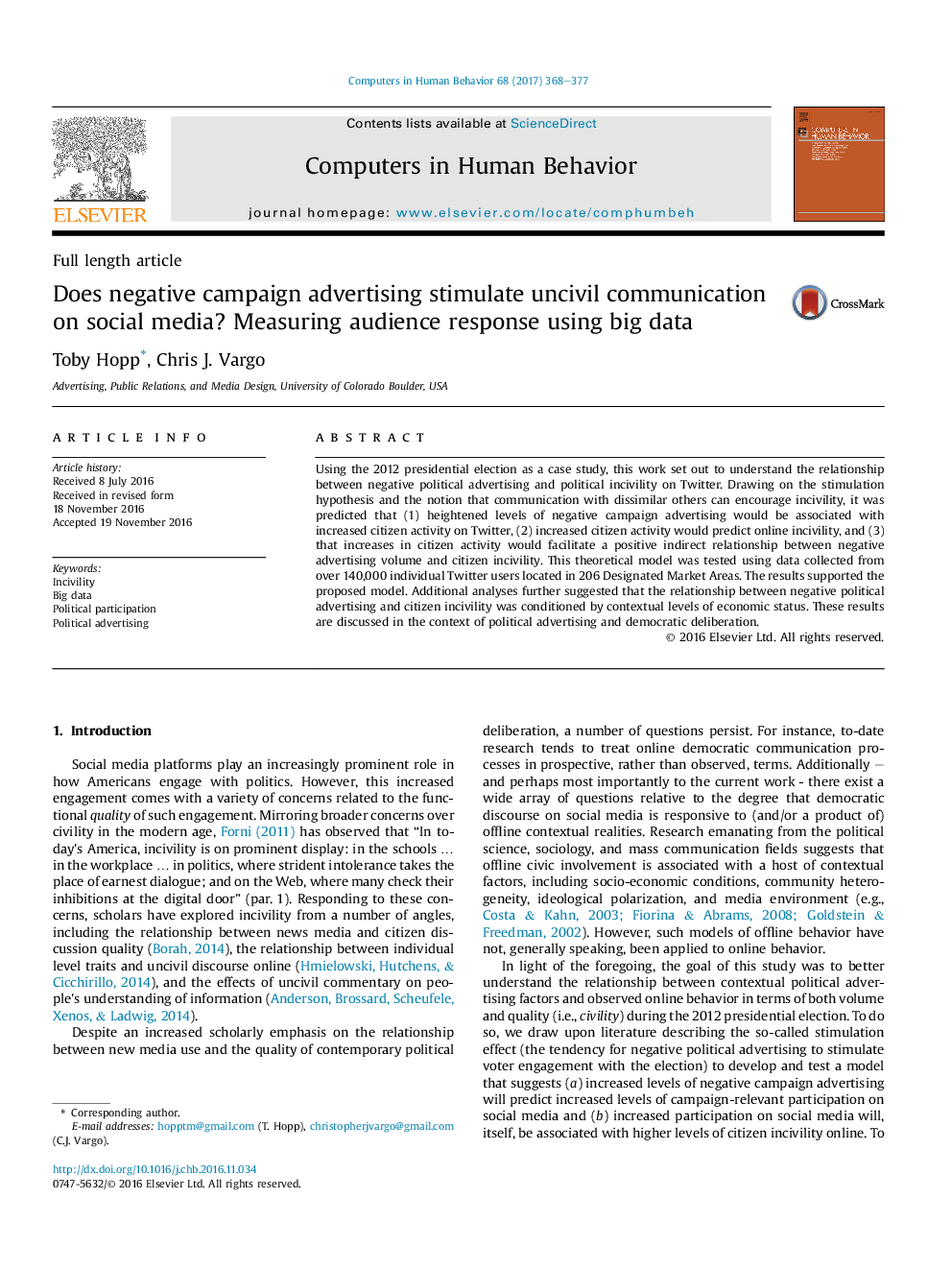| Article ID | Journal | Published Year | Pages | File Type |
|---|---|---|---|---|
| 4937693 | Computers in Human Behavior | 2017 | 10 Pages |
Abstract
Using the 2012 presidential election as a case study, this work set out to understand the relationship between negative political advertising and political incivility on Twitter. Drawing on the stimulation hypothesis and the notion that communication with dissimilar others can encourage incivility, it was predicted that (1) heightened levels of negative campaign advertising would be associated with increased citizen activity on Twitter, (2) increased citizen activity would predict online incivility, and (3) that increases in citizen activity would facilitate a positive indirect relationship between negative advertising volume and citizen incivility. This theoretical model was tested using data collected from over 140,000 individual Twitter users located in 206 Designated Market Areas. The results supported the proposed model. Additional analyses further suggested that the relationship between negative political advertising and citizen incivility was conditioned by contextual levels of economic status. These results are discussed in the context of political advertising and democratic deliberation.
Related Topics
Physical Sciences and Engineering
Computer Science
Computer Science Applications
Authors
Toby Hopp, Chris J. Vargo,
